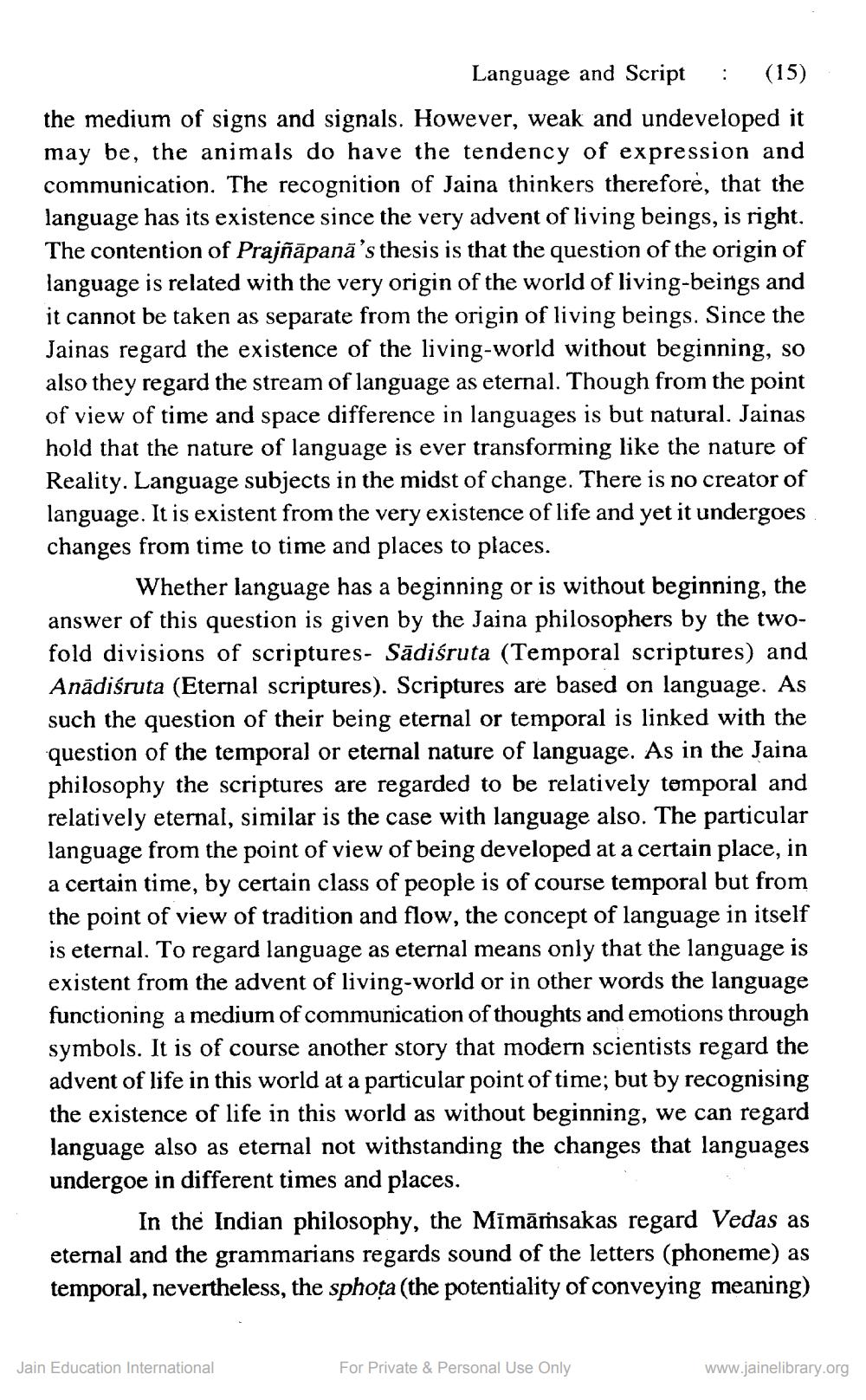________________
Language and Script : (15) the medium of signs and signals. However, weak and undeveloped it may be, the animals do have the tendency of expression and communication. The recognition of Jaina thinkers therefore, that the language has its existence since the very advent of living beings, is right. The contention of Prajñāpanā's thesis is that the question of the origin of language is related with the very origin of the world of living-beings and it cannot be taken as separate from the origin of living beings. Since the Jainas regard the existence of the living-world without beginning, so also they regard the stream of language as eternal. Though from the point of view of time and space difference in languages is but natural. Jainas hold that the nature of language is ever transforming like the nature of Reality. Language subjects in the midst of change. There is no creator of language. It is existent from the very existence of life and yet it undergoes changes from time to time and places to places.
Whether language has a beginning or is without beginning, the answer of this question is given by the Jaina philosophers by the twofold divisions of scriptures- Sādiśruta (Temporal scriptures) and Anadiśruta (Eternal scriptures). Scriptures are based on language. As such the question of their being eternal or temporal is linked with the question of the temporal or eternal nature of language. As in the Jaina philosophy the scriptures are regarded to be relatively temporal and relatively eternal, similar is the case with language also. The particular language from the point of view of being developed at a certain place, in a certain time, by certain class of people is of course temporal but from the point of view of tradition and flow, the concept of language in itself is eternal. To regard language as eternal means only that the language is existent from the advent of living-world or in other words the language functioning a medium of communication of thoughts and emotions through symbols. It is of course another story that modern scientists regard the advent of life in this world at a particular point of time; but by recognising the existence of life in this world as without beginning, we can regard language also as eternal not withstanding the changes that languages undergoe in different times and places.
In the Indian philosophy, the Mīmāṁsakas regard Vedas as eternal and the grammarians regards sound of the letters (phoneme) as temporal, nevertheless, the sphota (the potentiality of conveying meaning)
Jain Education International
For Private & Personal Use Only
www.jainelibrary.org




